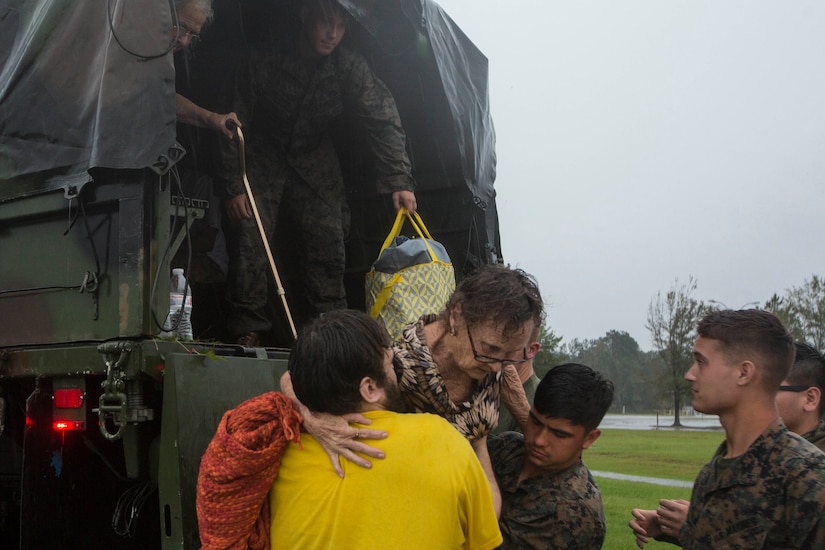By Jim Garamone, DoD News, Defense Media Activity
WASHINGTON -- One of the tenets of the National Defense
Strategy is maintaining and building alliances.
Marine Corps Gen. Joe Dunford’s recent trip around the world
is an example of that in action.
The chairman of the Joint Chiefs of Staff constantly works
with allies to strengthen alliances. He also reaches out to prospective
partners to encourage cooperation and interoperability.
“Mutually beneficial alliances and partnerships are crucial
to our strategy, providing a durable, asymmetric strategic advantage that no
competitor or rival can match,” it says in the National Defense Strategy.
Since World War II, the United States has always fought
alongside allies.
U.S. treaty allies in the Pacific -- Australia, New Zealand,
Japan, South Korea, the Philippines and Thailand -- provide capabilities,
advice and intelligence invaluable to mutual defense priorities.
Allies and partners are in Afghanistan. They are in Iraq and
Syria. They are working with the defeat-ISIS coalition. They provide a physical
and moral edge that powers like Russia and China cannot duplicate.
But the alliance process is a two-way street and requires
listening, a frank exchange of ideas and positions and concrete steps that make
an aspiration a reality.
The chairman’s trip covered stops in Greece, Pakistan,
India, Afghanistan and Hawaii.
Greece is a mainstay in the NATO alliance, and Dunford’s
counterpart, Greek Navy Adm. Evangelos Apostolakis, hosted the general.
U.S.-Greek military-to-military relations have been good for decades, but the
overall bilateral relationship between Greece and the United States “is
probably as good as it has been in many, many years,” the chairman said.
Greece and the United States see the problems in the region
alike and worry about Russian moves in Europe, in Syria and in the greater
Middle East. The two nations are concerned with Libya and the growth of violent
extremism. The two leaders discussed the refugee crisis and how to increase the
exercise program between the two nations and the possibility of the United
States having access to Greek bases.
The chairman left Athens for Islamabad, Pakistan. Pakistan
is key to the South Asia Strategy that President Donald J. Trump espoused in
August 2017. Pakistan has to be a part of a solution in Afghanistan. Dunford
joined with Secretary of State Mike Pompeo to meet with Pakistan’s new Prime
Minister Imran Khan, Foreign Minister Mehmood Qureshi and Army Chief of Staff
Gen. Qamar Javed Bajwa.
“When we talked to General Bajwa on a military-to-military
level, we listened to the prime minister very carefully [and] we listened to
the secretary very carefully,” Dunford said following the talks. “The
objectives were very consistent between the secretary and prime minister.
General Bajwa and I agreed that we will leverage the military-to-military
relationship for the secretary and prime minister and, more importantly, for
President Trump’s South Asia Strategy.”
Actions speak louder than words and the Pakistani leaders
agreed to “reset” their relationship with the United States. “What we want to
see: The Taliban at the peace table dealing with Afghans,” Dunford said. “And
we believe the Pakistanis play a unique role in bringing the Taliban to the
peace process.”
The chairman’s next stop was New Delhi, India, where he
joined his boss, Defense Secretary James N. Mattis, and Pompeo for the 2+2
Talks with Indian Defense Minister Nirmala Sitharaman and Minister of External
Affairs Sushma Swaraj.
During the meeting the leaders spoke to regional and global
concerns like Afghanistan, North Korea and terrorism. Sitharaman said the U.S.
military-to-military cooperation has been a “key driver” of the relationship.
Pompeo stressed the shared values the U.S. and India
possess. “We have a responsibility to advance those shared values: rule of law;
national sovereignty; good governance; the protection of fundamental freedoms,
rights and liberties; free, fair and reciprocal trade relationships and
peaceful resolutions of territorial and maritime disputes,” he said.
Mattis and the chairman next made an unannounced trip to
Afghanistan where they met with U.S., coalition and Afghan officials. The visit
was a chance to hear directly from those most directly affected by strategies
in the region.
Finally, Dunford’s journey led him to Hawaii where he and
his senior enlisted advisor Army Command Sgt. Maj. John W. Troxell participated
in a senior leadership meeting hosted by U.S. Indo-Pacific Command. The meeting
allowed Dunford and his fellow chiefs of defense to discuss the military
dimension of what a “free and open Indo-Pacific” looks like and how to best
cooperate to ensure this environment continues.
The chairman flew back to Washington, D.C., landing at Joint
Base Andrews, Maryland, at 1 a.m. Sept. 12. He was back on an aircraft just
over 12 hours later to fly to Mexico City to consult with leaders of the
Mexican army and Navy.









